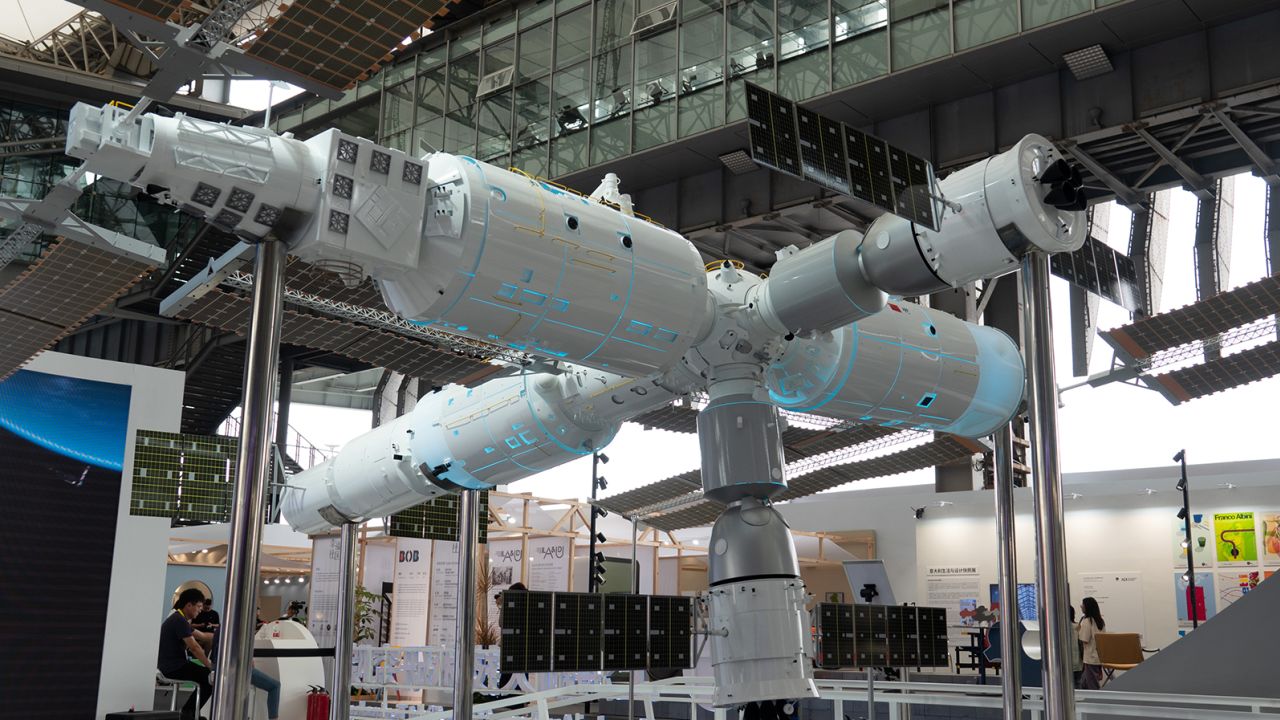(CNN) — China plans to expand its space station from three to six modules in the coming years, offering astronauts from other countries an alternative platform for near-Earth missions, as an expansion of the NASA-operated International Space Station (ISS) approaches. life.
The Chinese Academy of Space Technology (CAST), a unit of China’s main space contractor, announced Wednesday at the 74th International Astronautical Congress in Baku, Azerbaijan, that China’s space station will have a useful life of more than 15 years.
This will be longer than the previously announced ten years.
The space station built by ChinaThe satellite, also known as Tiangong, or Heavenly Palace in Chinese, has been fully operational since the end of 2022, hosting up to three astronauts at an orbital altitude of up to 450 kilometers.
At 180 metric tons after expanding to six modules, Tiangong still represents only 40% of the mass of the International Space Station, which can accommodate a crew of seven astronauts. But the International Space Station, which has been in orbit for more than two decades, is expected to be decommissioned after 2030, around the same time that China has said it hopes to become a “major space power.”
Chinese state media said last year, when Tiangong became fully operational, that China would not be left behind, adding that “several countries” had requested to send their astronauts to the Chinese station.
But in a blow to China’s space diplomacy ambitions, the European Space Agency this year said it had no financial or political green light to participate in Tiangong, delaying a years-long plan for visiting European astronauts.
The Global Times, a Chinese nationalist newspaper, wrote at the time: “Abandoning cooperation with China in manned space is clearly short-sighted, and reveals that the fierce US-led confrontation has led to a new space race.”
Tiangong has become a symbol of China’s growing influence and confidence in its space efforts, and a competitor to the United States in this field after its isolation from the International Space Station. US legislation prohibits any direct or indirect cooperation with NASA.
Russia, a participant in the International Space Station, has similar plans for space diplomacy, suggesting that Moscow’s BRICS partners – Brazil, India, China and South Africa – could build a module for its space station.
The Russian space agency Roscosmos announced last year that it plans to build a six-module space station that can accommodate up to four astronauts.

“Proud web fanatic. Subtly charming twitter geek. Reader. Internet trailblazer. Music buff.”

:quality(85)/cloudfront-us-east-1.images.arcpublishing.com/infobae/TEQF6EONZRFGLLLDIDD4L2O4EE.jpg)

:quality(75)/cloudfront-us-east-1.images.arcpublishing.com/elcomercio/XU32LRAEZFDDPNVHLFU3CKVBYY.jpg)



More Stories
How to create 3D videos with my iPhone, it will be very useful even for your business
NASA discovers an anomaly in the Earth’s magnetic field that could have serious consequences for humans
Can the Earth be divided into two parts?